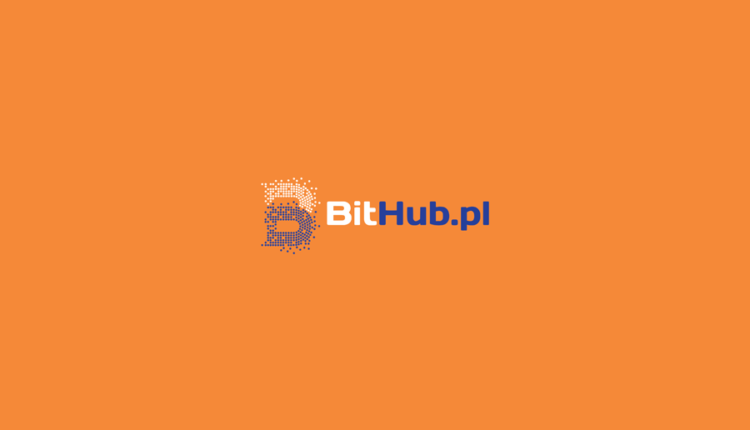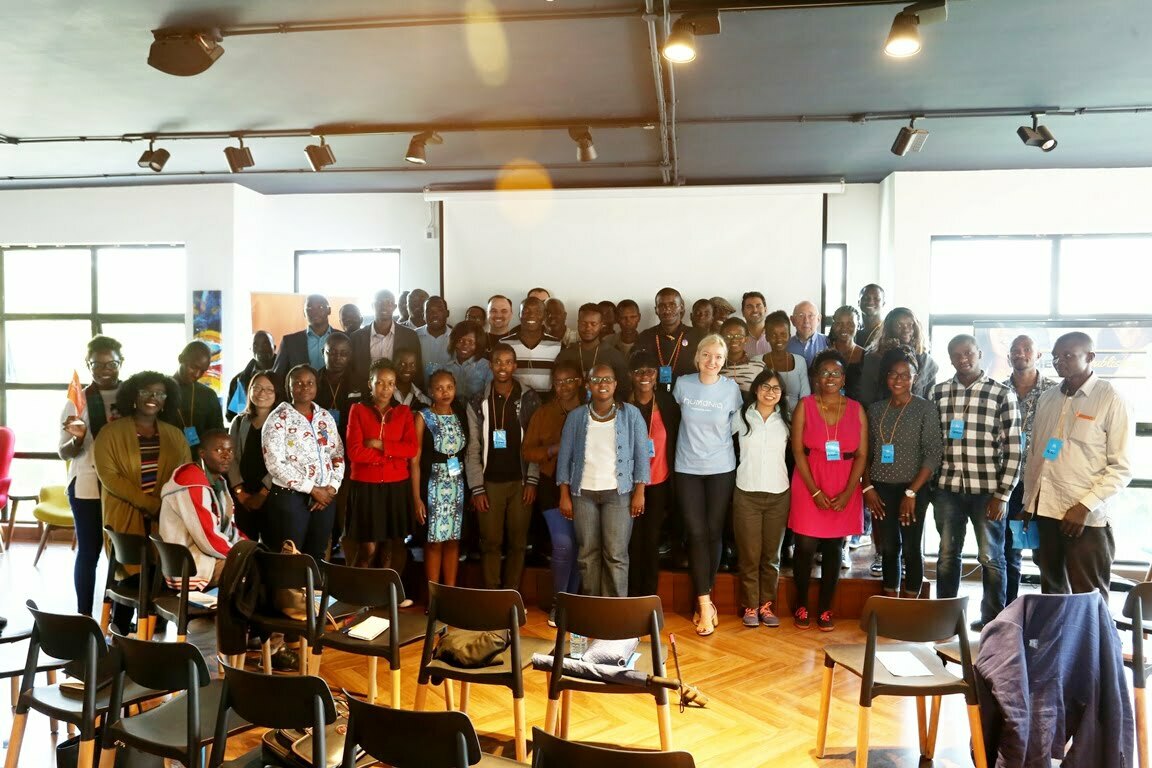
#SundayInterview. We’re building a market in Africa from scratch
We take interest in areas where there is a lack of traditional banking. It is like creating a “blue ocean” of new economic activity – we are building an uncontested market in Africa from scratch. Existing payment systems and banks take no interest in the people that we work with – who cares about a guy with 5 USD in his account? – says Alex Fork, Founder of Humaniq in Bithub.pl’s #SundayInterview.
Your claim is Empowering the unbanked. How exactly do you plan to do that?

When I enter your site, I see a map with 5 hotspots in the South-East Asia region. Does geography mean a lot in the crypto/blockchain industry? In terms of where the biggest focus and interest come from.
AF: This map with hotspots is our vision of the new world we hope to develop within the crypto/blockchain industry. The whole crypto concept extends far beyond territorial principles and boundaries. Our key interests have no specific geographical pegs; we are looking for technology partnerships with startups to develop the Humaniq ecosystem, and in doing so we do not see physical location of partner businesses as important. For example, last year we ran the Humaniq Global Challenge – a competition for blockchain projects aimed at helping the unbanked of the world. The projects were created for the Humaniq ecosystem; their aim was either to generate useful services or to provide the possibility to generate income remotely for people living in the unbanked regions of the world with the help of a simple smartphone. The top 3 projects got a chance to participate in an expedition to Kenya to gain a better understanding of different unbanked people’s ways of life and to get feedback about their ideas. The winner businesses came from the UK, Indonesia and Singapore.
On the other hand, we have a clear geographical target for the Humaniq App to be used with its full functionality initially in Uganda, Senegal, Zimbabwe, Tanzania and Rwanda. All these are sub-Saharan African countries, so to this extent we could say that we have a focus on Africa. Moreover, we run a successful ambassador program in Africa – the 22 Humaniq ambassadors are all committed team workers, and their input cannot be underestimated. The insights that the ambassadors share with us help us to improve the Humaniq App, developing it with the primary focus on close user interaction. In addition, we continue to work to expand our presence in the region, involving other African countries in the Humaniq ecosystem.

Do you really believe blockchain startups can create an alternative to government-backed banking? Whatever the governments are they are more credible to most of the people than startup enterprises. How do you want to effectively market your offer?
AF: We are working with a specific segment where there is a lack of trust in government-backed banking. For instance, The Red Cross has confirmed that over $5 million of aid money was lost to fraud and corruption during the Ebola epidemic in Africa. Auditors discovered overpriced supplies, salaries for non-existent aid workers and fake customs bills. Unfortunately, there exist quite a lot of similar cases. The main reason why the blockchain should be used for banking services is to prevent such incidents. We do not position ourselves as an alternative to traditional banking, this is not our goal. We take interest in areas where there is a lack of traditional banking. It is like creating a “blue ocean” of new economic activity – we are building an uncontested market in Africa from scratch. Existing payment systems and banks take no interest in the people that we work with – who cares about a guy with 5 USD in his account? It is unprofitable for traditional businesses to work with them. The Blockchain, in contrast, can provide a free of charge service and easy access.
Will blockchain banking be able to push traditional banking out of the market in the future?
AF: First of all let’s talk about the differences between cryptocurrencies and the government-backed system. Throughout history, mankind has been tied to a certain territory – whatever service you would choose it would naturally be the best that you could find nearby, so you would be bound to choose local education, go to a local shop, use local state services and currency. The Internet has changed this approach completely: one now has access to best practices around the world. Cryptocurrencies do the same in the field of money; they are intrinsic to the nature of the Internet, its flesh of flesh, unlike VISA or MasterCard systems. There are no boundaries for cryptocurrencies or obstacles to their spread. And nowadays we are witnessing the establishment of a new institution. Some countries, like Switzerland or Belarus, have now legalized crypto-currency transactions, some countries have banned them, others ignored them altogether or do not have a clear position. The countries that make the first steps in this direction will eventually benefit and ultimately stand to gain from such a shift.
In banking security is the crucial issue. How do you solve that? If your bank is on your phone you need to be very careful with this device…
AF: The Humaniq application and wallet are as secure as they can be, we have a unique approach to ensuring security. We use a Proof-of-Human system which is a comprehensive solution that includes biometric identification, PIN codes, behavioral scoring, and analyzing user online presence such as interactions in the social environment. If you lose your smartphone or in case it gets stolen, you can easily install the Humaniq App on another phone, pass the identification process and continue using it as before. And of course our support team are always there to assist the users with any issues they may face. No one else can access your wallet, even if this person finds your smartphone, they won’t be able to successfully prove that they are you and hence will not be able to use your Humaniq ID. This makes our solution much safer than traditional money.
What is the role of Humaniq token (HMQ) in your system? Does it have a value beyond your app? Is it tradeable on the external exchanges?
AF: Humaniq is a Fintech startup – we are not just another blockchain project or cryptocurrency either. We use a combination of three core technologies: biometric identification, blockchain and a mobile application. Blockchain is used for processing and keeping records. It is also a platform for access to external services and startups, such as in the charitable, banking or other sectors where p2p transactions are in demand. 80% of tokens will be generated inside the Mobile Application, so their future holders are those who use the Humaniq App and invest their time and energy into the project. We issue currency to attract users, to get them to try new features, invite their friends, enjoy financial interactions with each other so they could add value and create a new digital economy in Africa. Back to your first question, this precisely is what we call ‘empowering’.
Interview by Przemyslaw Cwik
e-mail: p.cwik/at/bithub.pl

